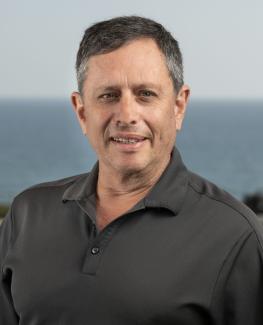
Distinguished Professor
Education
PhD, MS, Civil (Environmental) Engineering, Stanford University; BA, Chemistry, Cornell University
Bio
Dr. Keller's research focuses on the sustainable use of chemicals and materials in our modern society, by understanding and quantifying their potential impacts, and seeking ways to minimize impacts while achieving the benefits. He is particularly interested in emerging materials, such as nanoparticles and biochemicals, for which little information is available. He also does work at large scales to design better management strategies for common chemicals such as fertilizers and pesticides.
Dr. Keller is known for his involvement in the phasing out of the gasoline additive MTBE as part of a UC-wide project; his research found MTBE to seriously affect water resources while providing only modest air quality benefits relative to other alternatives.
Dr. Keller also was the facilitator for the award-winning Nitrogen TMDL process for the Santa Clara River. Previous TMDLs in the region had been very contentious, but through a combination of science-supported decision-making and a willingness to try out many ideas proposed by the stakeholders, the Santa Clara River TMDL Steering Committee was able to reach a consensus, which was fully supported by the RWQCB. The steering committee received the 2003 H. David Nahai Water Quality Award for their work.
He has also worked with several Regional Water Quality Control Boards on TMDL processes, including nutrients in the Napa River, PCBs in San Francisco Bay, organophosphate pesticides in the Newport Bay watershed, and an assessment of TMDL priorities in the South Coast area of Santa Barbara County. These experiences have not only served to train many graduate students at the Bren School, but have also resulted in important advances in the modeling and management of watershed-scale water quality. Dr. Keller teaches a course on Sustainable Watershed Management, which is open to professionals through the UCSB Extension Program.
Dr. Keller is also well-known for his expertise in the fate and transport of pollutants, including organic liquids (NAPLs) as well as organic pesticides associated with clay particles; he has over 50 peer-reviewed publications in top journals. His research team also works on technologies to solve important water-quality problems, and recently was covered in the New York Times for a major improvement in the technology to skim oil spills in marine environments, which can significantly reduce the risk of the oil spill reaching coastal resources.